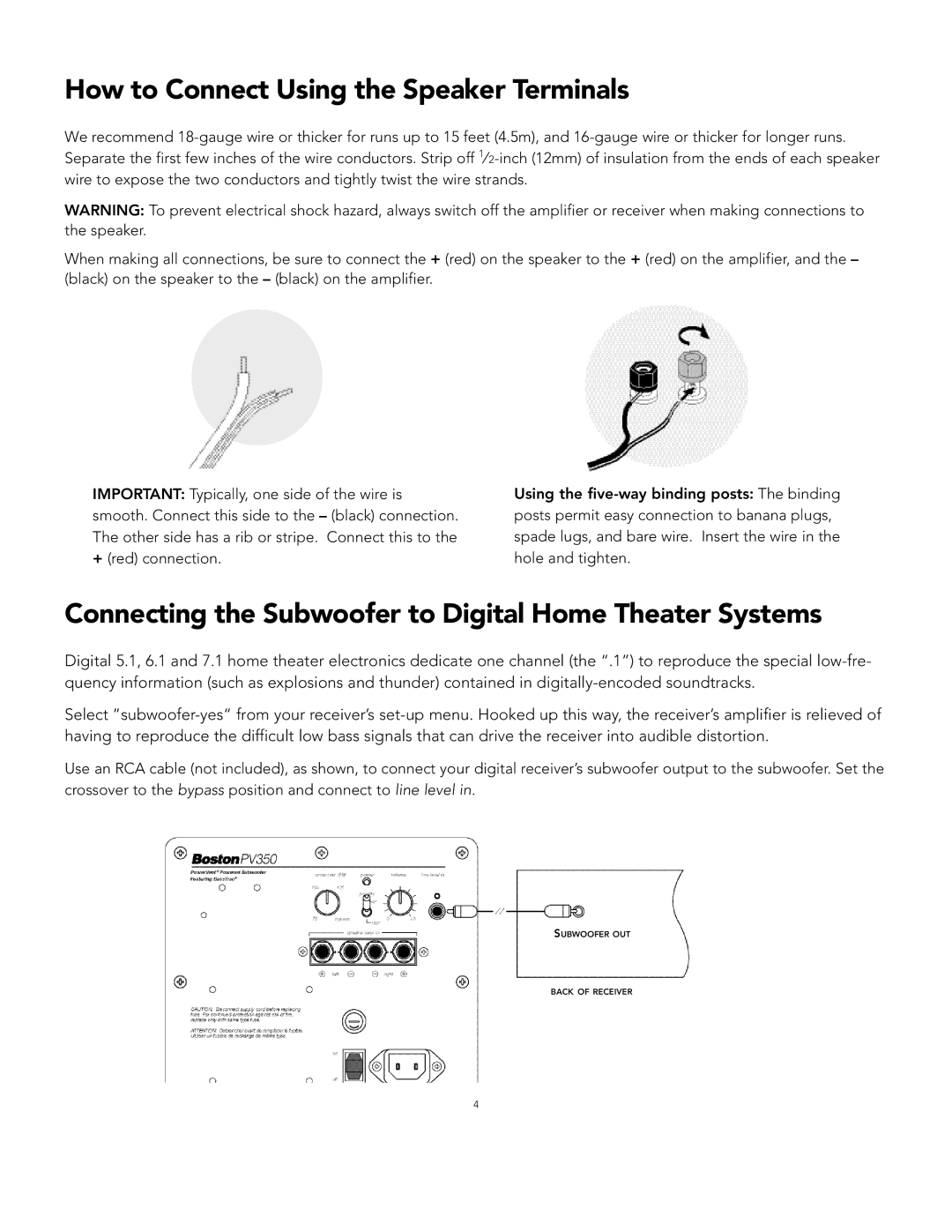
How to Connect Using the Speaker Te rm i n a l s
We recommend
WARNING: To prevent electrical shock hazard, always switch off the amplifier or receiver when making connections to the speaker.
When making all connections, be sure to connect the + (red) on the speaker to the + (red) on the amplifier, and the – (black) on the speaker to the – (black) on the amplifier.
IMPORTANT: Typically, one side of the wire is smooth. Connect this side to the – (black) connection. The other side has a rib or stripe. Connect this to the
+(red) connection.
Using the
Connecting the Subwoofer to Digital Home Theater Systems
Digital 5.1, 6.1 and 7.1 home theater electronics dedicate one channel (the “.1”) to reproduce the special
Select
Use an RCA cable (not included), as shown, to connect your digital receiver’s subwoofer output to the subwoofer. Set the crossover to the bypass position and connect to line level in.
SUBWOOFER OUT
BACK OF RECEIVER
4
